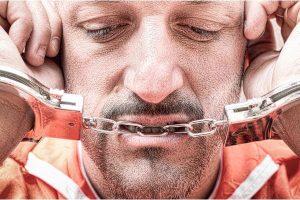Conditions for mentally ill inmates are grim in many jails across the country. However, jails in Maricopa County have been singled out for criticism in recent years.
Writing in Arizona Capitol Times in 2018, Eric Balaban, a senior staff counsel with the National Prison Project of the American Civil Liberties Union, described terrible conditions for mentally ill inmates held in Maricopa County Jail’s Special Management Unit.

He wrote about naked men covered in filth and blocked up toilets and said the unit in downtown Phoenix was the worst he had ever seen in 23 years of visiting jails and prisons across the nation.
The reports from Maricopa County are extremely concerning for the family members of those housed in such unsanitary conditions.
The conditions are tough both mentally and physically. The article pointed out SMU was designed to remove prisoners from human contact. Inmates are left alone at least 22 hours daily in windowless cells as small as parking spaces. Balaban wrote the only sounds in the unit are the screaming of acutely mentally ill prisoners. They are only allowed outside one hour on weekdays, which they spend in a cage.
The Capitol Times article called for an ending to the locking up of severely mentally ill prisoners in solitary confinement.
While SMU was built for extremely dangerous prisoners who could not be managed elsewhere, Balaban argued it has become a place where the mentally ill are indiscriminately dumped in horrific conditions.
Many of the behaviors that land inmates in SMU are consistent with untreated mental illness such as refusing orders or repeated outbursts of anger.
When the controversial Sheriff Joseph Arpaio ran jails in Maricopa County, prisoners ended up here for cutting themselves and spreading blood on the walls of their cells or for other minor offenses.
The rapid deterioration of inmates with mental illness in solitary confinement is well documented. The American Civil Liberties Union warns solitary confinement exacerbates mental health problems.
Balaban is a senior staff counsel with the National Prison Project of the American Civil Liberties Union. The NPP has filed a lawsuit challenging mental health services and the provision of medical services to pretrial detainees in Maricopa County, a system with 8,200 jail beds.
In 2014, a federal judge held that the defendants in the case, the county’s sheriff and supervisors, failed to comply with a former judgment or the constitution in providing adequate mental help and health care.
The court heard the high turnover of inmates and short-stay nature of much of the jail population complicated the provision of mental health services and medical provision. However, the defendants failed to implement the prior judgment for more than half a decade. They then filed a motion to dismiss it.
The court found Maricopa County failed to show that all pretrial detainees were seen by a medical provider within 24 hours of arrival in jail or properly transferred to an appropriate medical facility in time.
The inadequate treatment of mentally ill prisoners in the jails of Maricopa County remains a grave cause for concern. If you or a family member has been arrested and you have mental health issues, please contact our Arizona criminal defense lawyer today at (602) 340-1999.


